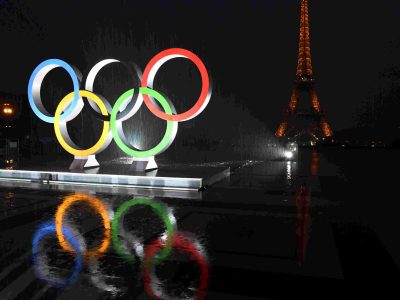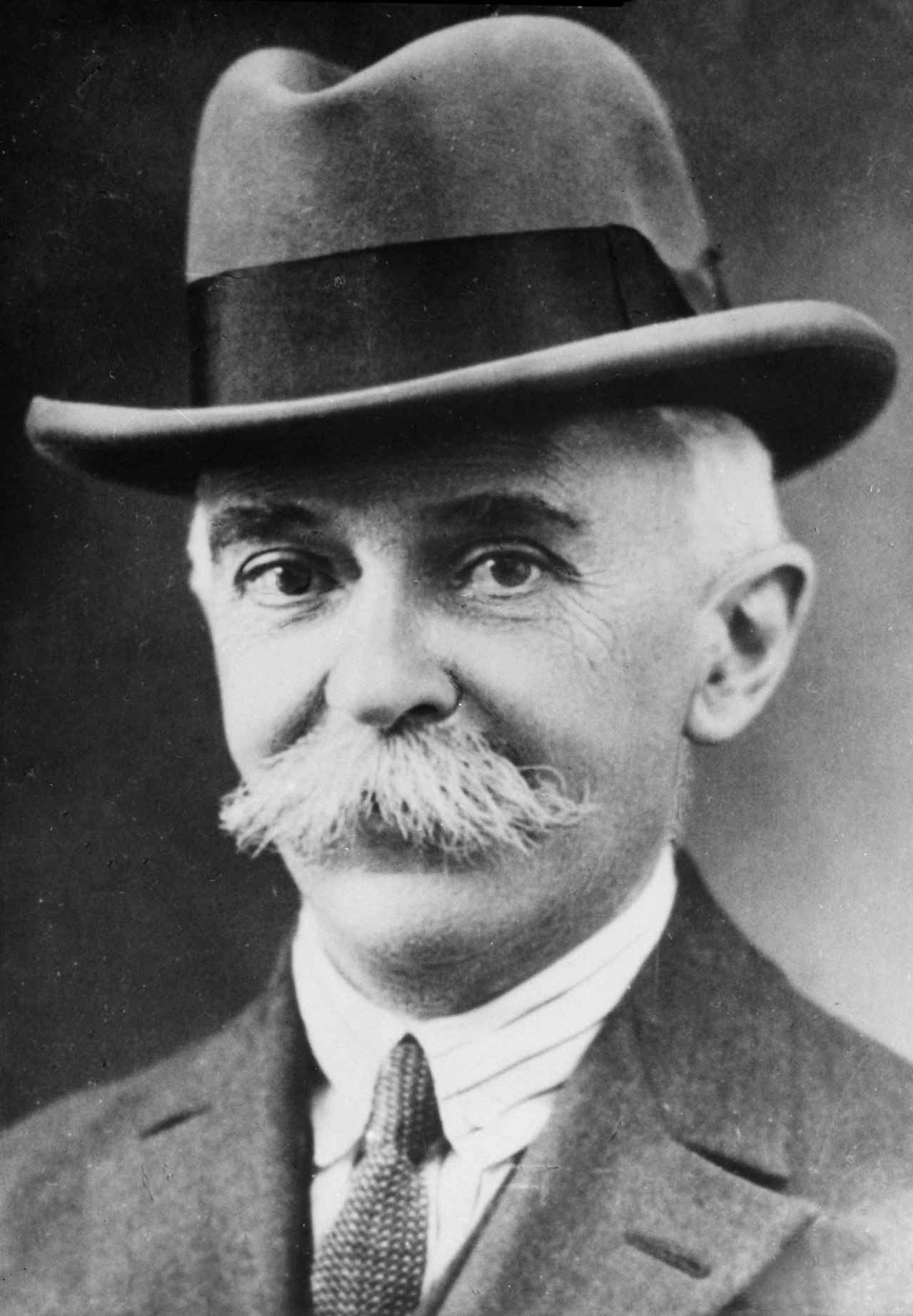The Distasteful Nonsense of Olympism

Ekecheiria, also known as the “Olympic Truce,” is a quaint notion dating to Ancient Greece, when three kings prone to warring against each other – Iphitos of Elis, Cleosthenes of Pisa and Lycurgus of Sparta – concluded a treaty permitting the safe passage of all athletes and spectators from the relevant city-states for the duration of the Olympic Games. The truce had a certain logic to it, given that many of those granted safe passage would have been serving soldiers or soldiers in waiting.
In 1894, the founder of the International Olympic Committee (IOC), Pierre de Coubertin, fantasised about the Games as a peace promoting endeavour which, when read closely, suggests the sublimation of humanity’s warring instincts. Instead of killing each other, humans could compete in stadia and on the sporting tracks, adoring and admiring physical prowess.
“Wars break out because nations misunderstand each other. We shall have no peace until the prejudices which now separate the different races shall have been outlived. To attain this end, what better means than to bring the youth of all countries periodically together for amicable trials of muscular strength and agility.”

Image: Pierre de Coubertin (Licensed under CC0)
Panting over torsos, sinews and muscles, de Coubertin gushingly wrote his “Ode to Sport” in 1912. Sport was peace, forging “happy bonds between the peoples by drawing them together in reverence for strength which is controlled, organised and self-disciplined.” It was through the young that respect would be learned for “one another,” thereby ensuring that “the diversity of national traits becomes a source of generous and peaceful emulation.” Sport was also other things: justice, daring, honour, joy and, in the true spirit of eugenic inspiration, the means to achieve “a more perfect race, blasting the seeds of sickness”. Athletes would, accordingly, “wish to see growing about him brisk and sturdy sons to follow him in the arena and [in] turn bear off joyous laurels.”
The Olympic Charter also states that Olympism’s central goal “is to place at the service of the harmonious development of humankind, with a view to promoting a peaceful society concerned with the preservation of human dignity.”
In the 1990s, the IOC thought it prudent to revive the concept of such a truce. As the organisation explains, this was done “with a view to protecting, as far as possible, the interests of the athletes and sport in general, and to harness the power of sport to promote peace, dialogue and reconciliation more broadly.” In 2000, the IOC founded the International Olympic Truce Foundation, adopting the dove as a signature symbol of the Games. By the London Olympics of 2012, the 193 nations present had signed onto an Olympic Truce.
From such lofty summits, hypocrisy and inconsistency will follow. The IOC, hardly the finest practitioner of fine principle, has been prone to injudicious standards, rampant corruption and tyrannical stupidity. The IOC recommendation to ban Russian athletes took all but four days after the attack on Ukraine in February 2022 on the premise that Russia had breached the sacred compact of sporting peace. In the mix, Belarus, designated as arch collaborator with Russian war aims, was also added.
During the 11th Olympic Summit held on December 9, 2022, the IOC Executive Board noted that the Olympic Games would not “address all the political and social challenges in the world. This is the realm of politics.” Having advocated that platitudinous, false distinction, the Executive Board could still claim that the Games “can set an example for a world where everyone respects the same rules as one another.”
The IOC did make one grudging concession: Russian and Belarusian athletes could compete as Individual Neutral Athletes (AINs) subject to meeting eligibility requirements determined by the Individual Neutral Athlete Eligibility Review Panel. Each athlete’s participation was subject to respecting the Olympic Charter, with special reference to “the peace mission of the Olympic Movement”.
These statements and qualifications, intentionally or otherwise, are resoundingly delusional. The Games are events of pompous political significance, with athletes often being administrative and symbolic extensions of the nation stage they represent. Authoritarian regimes have gloatingly celebrated hosting them. They have been staging grounds for violence, notably in the killing of 12 Israeli athletes at the 1972 Munich Games by the Palestinian terrorist group Black September.
They have also been boycotted for very political reasons. The United States did so in 1980 for the Moscow Games, along with 64 other nations, in response to the Soviet Union’s invasion of Afghanistan in 1979. The Soviet Union returned the favour at the Los Angeles Olympics held in 1984, giving President Ronald Reagan a chance, in an election year, to speak of the “winning” American ideal and “a new patriotism spreading across our country.”
In keeping with the erratic nature of such a spirit, it was appropriately hypocritical and distasteful of IOC practice to permit the Israeli athletic contingent numbering 88 athletes to compete at the Paris Games. All this, as slaughter and starvation continued to take place in Gaza (at the time, the Palestinian death toll lay somewhere in the order of 39,000).
Permitting Israel’s participation prompted Jules Boykoff, an academic of keen interest in the Games, to suggest that “the situation is more and more resembling the situation that led the IOC forcing Russia to participate as neutral athletes.” The body’s “approach to ignore the situation places its selective morality on full display and throws into question the group’s commitment to the high-minded ideals it claims to abide.”
These ideals remain just that, a cover that otherwise permits political realities to flourish. Predictably, the Paris spectacle, both before and after, was always going to feature the tang and sting of resentment. Far from being apolitical exponents of their craft, various members of the Israeli Olympic team have been more than forthcoming in defending the warring cause. Judokas Timna Nelson-Levy and Maya Goshen have been vocal in their defence of the Israeli Defense Forces.
Palestinian participants have also done their bit. During the opening ceremony, boxer Wasim Abusal wore a shirt showing children being bombed, telling Agence France-Presse that these were “children who are martyred and die under the rubble, children whose parents are martyred and are left alone without food and water.” Such views are not permitted for Russian or Belarusian athletes, who must compete under the deceptive flag of neutrality.
The organisers of the Paris Games also found it difficult to keep a lid on an occasion supposedly free of political attributes. The Israel-Paraguay football march was marked by scornful boos as the Israeli national anthem was performed. Reports also note that at least one banner featured “GENOCIDE OLYMPICS”. Three Israeli athletes also received death threats, according to a statement from the Paris prosecutor’s office.
It’s such instances of political oddities that permit the following suggestion: make all athletes truly amateurish by abolishing their associations with countries. Most nation states, soldered and cemented compacts of hatred, based upon territory often pinched from previous occupants, are such a nuisance in this regard. If Olympism is to make sense, and if the ravings of the physique obsessed de Coubertin are to be given shape, why not get rid of the State altogether, thereby making all participants neutral, if only for a few weeks?
*
Click the share button below to email/forward this article to your friends and colleagues. Follow us on Instagram and Twitter and subscribe to our Telegram Channel. Feel free to repost and share widely Global Research articles.
One Month Before Global Research’s Anniversary
Dr. Binoy Kampmark was a Commonwealth Scholar at Selwyn College, Cambridge. He currently lectures at RMIT University. He is a Research Associate of the Centre for Research on Globalization (CRG). Email: [email protected]
Featured image source

